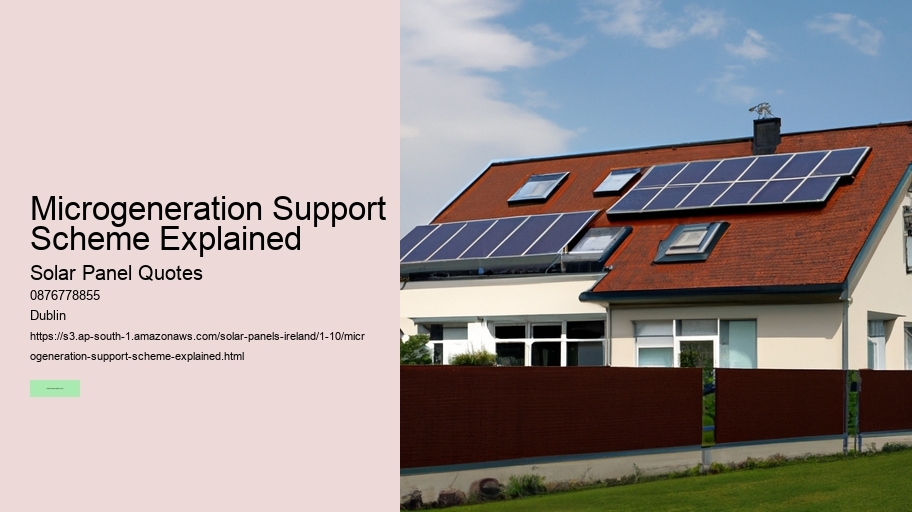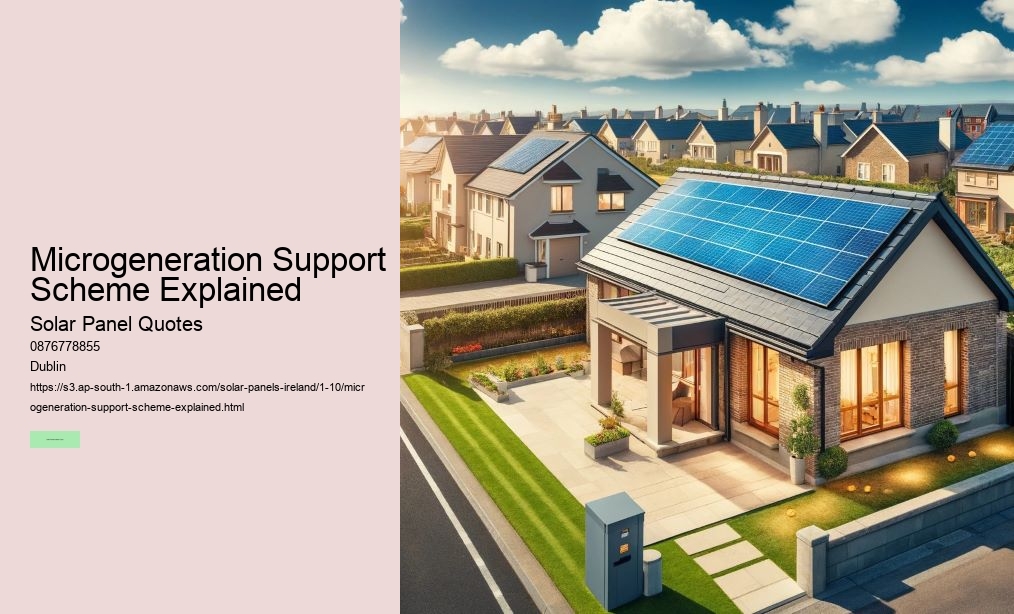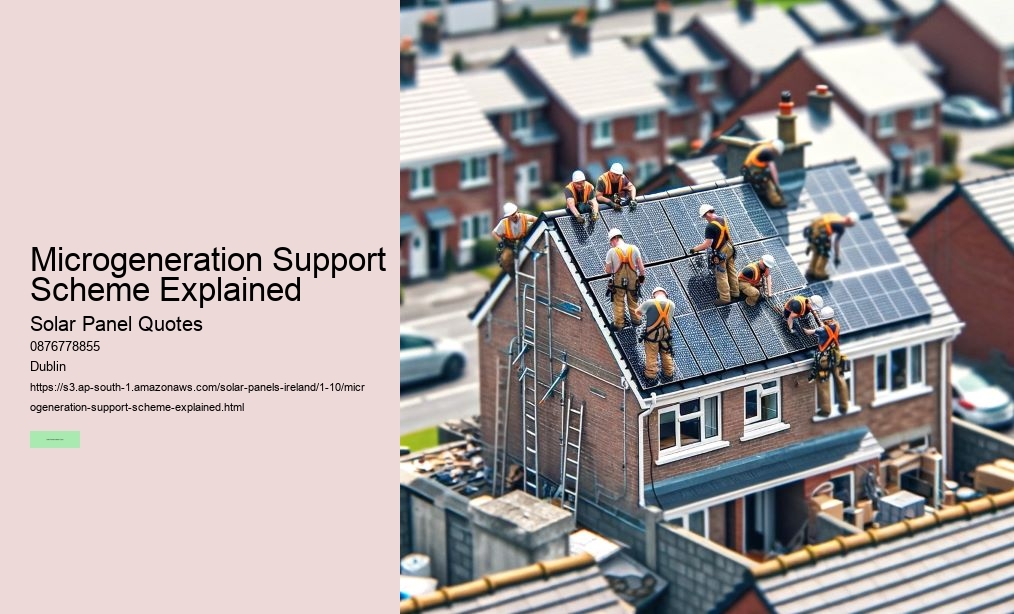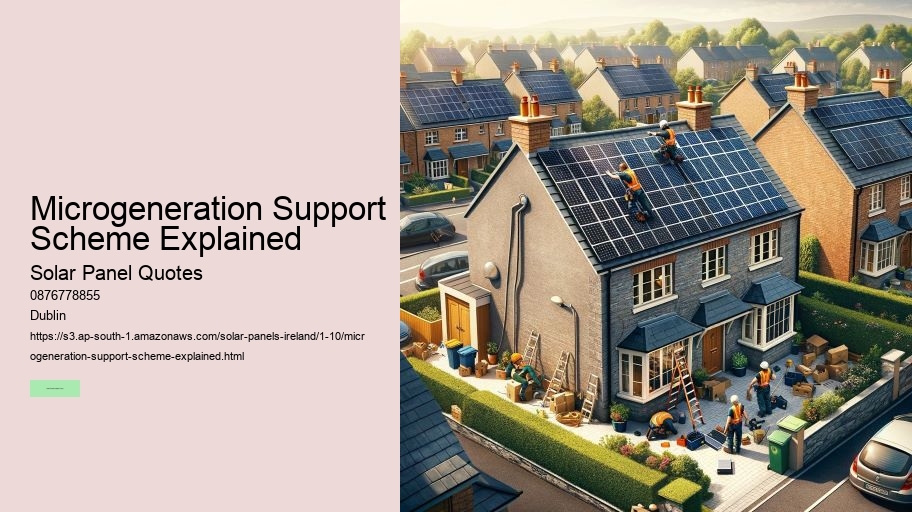

For example, they can charge electric vehicles, supporting the transition to cleaner transportation. They also provide a reliable backup during power outages. Polycrystalline silicon panels, while slightly less efficient, are more affordable and offer a good balance of cost and performance.
For Irish homeowners, the investment typically ranges between €6,000 and €18,000, influenced by factors such as system size, energy needs, and optional features like energy storage. looking for the cheapest solar panel ireland cost then checkout solar panel quotes. By consulting with solar panel companies, homeowners can receive personalized recommendations based on their specific energy needs and roof conditions. Electric Ireland
This approach supports sustainable energy development and aligns with global trends in reducing reliance on traditional power systems. The total cost of a solar panel system includes components such as the panels, inverters, batteries, and installation services.
With government incentives, advanced technologies, and proven long-term savings, solar panels are transforming the way energy is consumed in Ireland. These systems integrate seamlessly with existing setups, reducing overall energy consumption and costs.
While the initial investment may seem substantial, the long-term savings and benefits make it a cost-effective choice. By exporting excess electricity back to the grid, homeowners contribute to Ireland's renewable energy goals while earning additional income. They also provide warranties and ongoing support, giving you confidence in your investment.
Government incentives and VAT reductions make solar panel installation more affordable, and the long-term savings and environmental benefits make this renewable energy solution an increasingly attractive option for Irish households. Monocrystalline silicon panels, known for their efficiency and longevity, are ideal for properties with limited roof space.
Additionally, the government's decision to eliminate VAT on solar panels further reduces the upfront cost. The technology behind solar panels has evolved significantly, incorporating features like advanced inverters that convert direct current generated by the panels into alternating current for household use.
Factors like roof size, shading, and orientation also play a significant role in determining system costs and performance. The adoption of solar energy is not only about lowering your energy bills but also about embracing a lifestyle that reduces greenhouse gas emissions and supports sustainability.
Additionally, most solar systems come with warranties of 20 to 25 years, ensuring their durability and efficiency over the long term. For example, systems using high-efficiency monocrystalline silicon panels may cost more than those with polycrystalline silicon panels but deliver better energy output per square meter of roof space. The durability of solar panels further strengthens their cost-effectiveness.
Reputable solar panel companies in Ireland offer comprehensive services, from site assessments to customized system designs. For households with shading issues, optimizers can enhance energy production by mitigating the impact of partial shading on the roof.
Solar thermal energy systems can heat water efficiently, reducing the need for gas or electric heating and further cutting down on energy costs. Polycrystalline silicon panels provide a more economical option, though with slightly reduced efficiency.
These systems not only lower electricity prices but also align with global trends toward sustainable living. Homes equipped with rooftop photovoltaic systems and energy storage solutions are seen as energy-efficient and future-ready, making them desirable to potential buyers.


In terms of cost-effectiveness analysis, solar panels stand out as a smart investment. The payback period for solar panel installations in Ireland typically falls between five and seven years. Advanced energy storage systems can be scaled over time, starting with a smaller capacity and expanding as energy consumption increases.
The payback period for solar panels in Ireland typically ranges from five to seven years. Financial support and incentives play a crucial role in making solar energy accessible.
The Sustainable Energy Authority of Ireland (SEAI) offers grants of up to €2,400 for solar photovoltaic (PV) installations. A professional site assessment can help identify the most suitable system configuration for your home, ensuring maximum efficiency.
The cost of electricity by source has been steadily increasing, and solar power provides a predictable and stable way to lower energy bills over time. Solar panels also increase property value.

Microgeneration empowers homeowners to take control of their energy usage. Reputable companies offer comprehensive services, from system design to installation and maintenance. This shift from fossil fuels to renewable energy sources helps lower greenhouse gas emissions, contributing to global efforts in combating climate change.
Monocrystalline silicon panels, known for their high efficiency and durability, are a popular choice in Ireland. Solar panels offer a predictable and stable alternative to fluctuating electricity prices.
Several factors influence the overall cost of a solar panel system, including roof size, shading, and orientation. Battery storage systems, although an additional cost, provide resilience during power outages and optimize energy use throughout the day.
This added value complements the financial and environmental benefits of solar energy. solar thermal energy Beyond immediate financial benefits, solar panels add value to properties.

Investing in solar panels is a decision that benefits both your household and the planet. Similarly, surplus energy stored in home energy storage systems can power essential appliances during grid outages, offering peace of mind and independence from fluctuating electricity prices. During this time, homeowners benefit from significant reductions in their electricity bills, often saving up to €1,000 annually.
On average, solar panels pay for themselves within five to seven years, depending on the size of the system and energy usage. Government incentives in Ireland help reduce the financial burden of solar panel installations.
These systems integrate seamlessly with existing boilers and smart meters, ensuring optimal energy management. Solar inverters play a critical role in converting the direct current (DC) produced by solar panels into alternating current (AC) used in homes.
Solar panels are more than an investment-they are a commitment to sustainability, energy independence, and long-term financial benefits. Ireland's variable climate might raise concerns about solar energy's reliability, but advancements in solar technology ensure consistent performance.
While fossil fuel prices fluctuate, solar panels provide predictable savings and a defined payback period, usually between five to seven years. These features make it easier for homeowners to manage their energy systems and maximize savings. During this time, homeowners recoup their initial investment through energy savings and, in some cases, income from selling excess electricity back to the grid.
Optional features, such as shading optimizers or advanced inverters, can improve performance while adding to the initial investment. Regular cleaning and occasional inspections ensure that the panels operate at peak efficiency.
The cost of installing solar panels in Ireland typically ranges between €6,000 and €18,000. With support from SEAI grants, zero VAT, and the feed-in tariff system, switching to solar energy has never been more accessible.
Regular cleaning to remove dirt and debris ensures optimal performance, while modern systems are designed to last for 20 to 25 years or more. hybrid vehicle Any surplus energy generated can be stored or sold back to the grid, further lowering costs and supporting sustainable energy development.

Yes, the Irish government offers several incentives, including SEAI grants and a reduction in VAT on solar equipment to promote solar energy adoption.
Monocrystalline panels are made from a single crystal structure and are more efficient, while polycrystalline panels are made from multiple crystal fragments and are more cost-effective.
While solar panel efficiency can be impacted by Ireland’s variable weather, modern technology allows panels to still generate significant energy even on cloudy days.
Yes, there are several financing options available in Ireland for solar panel systems, including loans, leases, and Power Purchase Agreements (PPAs).
Monocrystalline panels are made from a single crystal structure and are more efficient, while polycrystalline panels are made from multiple crystal fragments and are more cost-effective.
Monocrystalline solar panels offer high efficiency and longevity, making them ideal for maximizing output in areas with limited space.